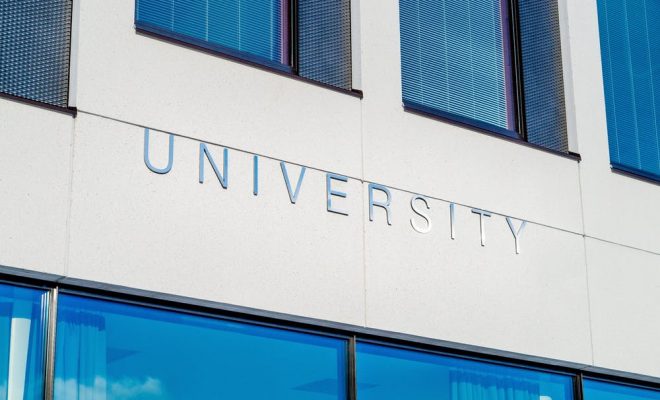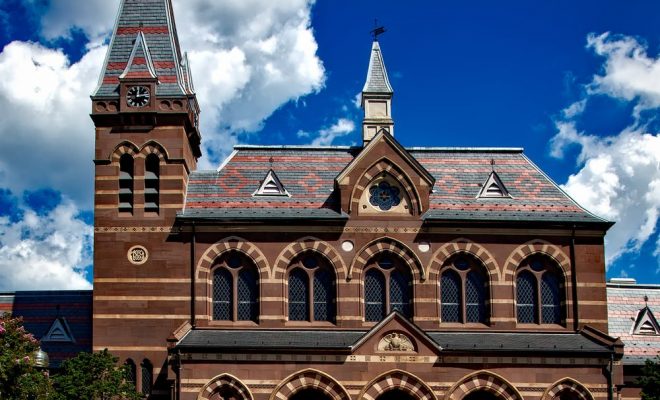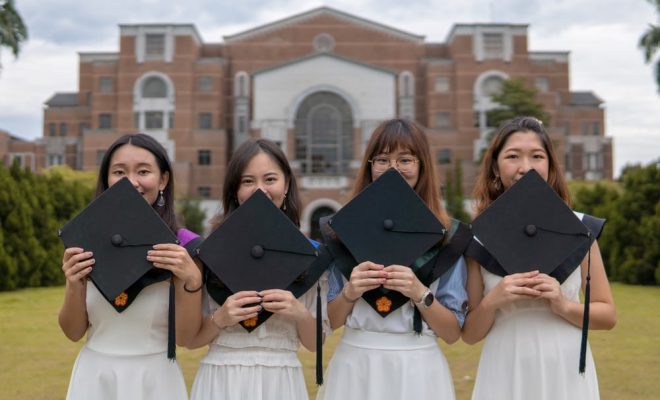2023 Best JD Programs in Civil Rights Law in America

Click here to learn more about the ranking methodology that we used to compile this list.
Congratulations! If you represent a college or university that is included in this list, please collect your seal below.
Attorneys are more than people who argue in a courtroom or advertise their services on billboards. This group of individuals seeks to help people who have legal issues get the justice they deserve. You might choose to pursue a law degree major simply because you love the idea of understanding the complexities of the law. Others might prefer to specialize in more specific topics such as corporate, environmental, or civil rights law (sometimes called human rights law). To practice law in the US, an individual must obtain their juris doctor (JD) from an accredited law school as well as sit for the state bar examination.
The choices available for those who hold a JD are almost endless. You can consider searching for jobs in any of these fields:
- Federal government attorney
- Civil rights attorney
- International law attorney
- Legal services
A graduate with a JD is estimated to earn $118,160 annually, according to the United States Bureau of Labor Statistics. Availability for these positions is currently slated to increase according to the same data.
Best JD Programs in Civil Rights Law
Located in the heart of New York City, NYU Law allows law students the chance to learn civil rights law in one of the top programs in the country. Students focus on legal theory and practice, legal research and writing, as well as a host of specialized course that ensure a well-rounded legal education. Additionally, students can take part in the various workshops, seminars, and student organizations available that emphasize facets of civil rights litigation. Students can also participate in the school’s Law Students for Human Rights group. NYU Law also hosts civil rights events led by noted legal scholars and attorneys. The civil rights curriculum includes critical race theory, civil rights narratives, political theory, and capstone courses for upper-level students.
For consideration for admissions, applicants must have taken the Law School Admission Test (LSAT) within the past five years; scores of admitted students ranged from 166 to 170 for the Fall 2017 class at NYU Law. In addition to a valid LSAT score, applicants must submit their undergraduate transcripts, two letters of recommendation, a personal statement, résumé, and any other relevant information. NYU Law does not offer a part-time JD program, and all admitted students must take a minimum of 12 credits per semester. To be eligible for graduation, students must successfully complete 83 credits.
Located in New Haven, Connecticut, Yale University Law School is home to an impressive civil rights program and individuals interested in this legal specialty have access to the Orville H. Schell, Jr. Center for International Human Rights. The Center immerses law students in local and international human rights initiatives. Also, Yale Law’s Human Rights Law Clinic gives students practical experience in this area of law guided by knowledgeable professor-attorneys. Yale Law also publishes the Yale Human Rights and Development Law Journal, which gives students the opportunity to publish research that serves to expand upon issues relevant to human rights law. Human rights coursework at Yale Law emphasizes advocacy and students who participate in the Allard K. Lowenstein International Human Rights Law Clinic complete projects each term on behalf of human rights organizations and individual victims of human rights abuse.
For consideration for admissions, applicants must have taken the Law School Admission Test (LSAT) within the past five years; scores of admitted students ranged from 156 to 180 for the Fall 2017 class at Yale Law. In addition to a valid LSAT score, applicants must submit their undergraduate transcripts, two letters of recommendation, a personal statement, résumé, and any other relevant information. Applicants will be notified of their admission status via email. To be eligible for graduation, students must successfully complete 83 units, which includes Substantial Paper and Supervised Analytic Writing (SAW) writing requirements.
Renowned for its rigorous curriculum and intensive programs, Columbia Law Schools offers one of the best civil rights-focused law degrees in the nation. The Columbia Law community prepares students for a legal career center on human rights through its Human Rights Institute. Founded in 1998, the Human Rights Institute at Columbia Law includes courses on the topics of immigration law, genocide law, and seminars that explore the rights of minority groups. Also, students can practical experience via legal clinics including the Human Rights Clinic and the Child Advocacy Clinic. Students at Columbia Law can also earn credit for publishing in the school’s Human Rights Law Review.
For consideration for admissions, applicants must have taken the Law School Admission Test (LSAT) within the past five years; scores of admitted students ranged from 169 to 173 for the Fall 2017 class at Columbia Law. In addition to a valid LSAT score, applicants must submit their undergraduate transcripts, two letters of recommendation, a dean’s letter (if applicable) a personal statement, résumé, and any other relevant information. Applicants may be required to complete an in-person interview. However, interview requests will not be considered. To be eligible for graduation, students must successfully complete 83 academic points, which includes applicable ABA writing requirements. To demonstrate their commitment to human rights law, all students must also complete a professional responsibility course and 40 hours of mandatory pro bono service following their first academic year (1L).
UVA Law features a thorough human rights program that aims to prepare students for future careers upholding the rights of others. Courses taken during the program include Racial Justice and the Law, Civil Rights Litigation, Advanced Topics in Public Service, and a Human Rights Study Project, to name a few.
For consideration for admissions, applicants must have taken the Law School Admission Test (LSAT) within the past five years; scores of admitted students ranged from 169 to 170 for the Fall 2017 class at UVA Law. In addition to a valid LSAT score, applicants must submit their undergraduate transcripts, two letters of recommendation, a personal statement, résumé, and any other relevant information. Students must maintain a minimum 2.7 GPA during all academic years of enrollment and must successfully earn 86 semester credits to be eligible for graduation. Students are required to complete upper-level writing requirements as defined by the ABA.
Located in Ann Arbor, Michigan, University of Michigan Law school has an abundance of opportunities for students interested in pursuing civil rights law. Course offerings include a wide range of topics including women’s rights, use of the law for reduction of global poverty, and the law of armed conflict, and many more. Students work closely with faculty and staff to define their career objectives and take the relevant courses that will adequately prepare them for the legal profession.
For consideration for admissions, applicants must have taken the Law School Admission Test (LSAT) within the past five years; scores of admitted students ranged from 164 to 170 for the Fall 2017 class at University of Michigan Law. In addition to a valid LSAT score, applicants must submit their undergraduate transcripts, one to three letters of recommendation, a personal statement, résumé, and any other relevant information. All aspects of the application are considered, ensuring that students are evaluated beyond their academic accomplishments. Students must maintain a cumulative 2.3 GPA and must successfully earn 83 credits to be eligible for graduation. Students are required to complete upper-level writing requirements as defined by the ABA.
How to Choose the Right Program
You can choose the perfect program based on your future career aspirations and the academic course load each school provides. Some law schools will focus more specifically on domestic civil rights issues while others give you a greater opportunity to study outside of the US by exploring human rights on a global scale field. After these considerations, you can rank schools by convenience, price, and accreditation.
Who accredits a JD with a civil rights concentration program?
Understanding the accreditation schools possess is the key to ensuring that you receive a top-notch education that will prepare you for a future in the legal profession. Every school, including online programs, will have to maintain some type of accreditation with state, regional or national accrediting agencies. The American Bar Association (ABA) is the main accrediting body for the law schools in the United States. All states, with the exception of California, will not permit an individual to take the bar exam if their JD was not issued by an ABA-accredited institution.
Beyond this accreditation, many will opt to maintain voluntary status with Distance Education Accrediting Commission. This accreditation mainly applies to online or correspondence programs and serves to hold the schools accountable for offering a well-rounded curriculum that adequately prepares students for the future. The top schools listed here offer traditional, in-person programs but it should be considered before you make a choice.
How long does it typically take to get a JD?
Most US law schools allow you obtain your juris doctor in three or four years but the top law schools for civil rights law do not offer part-time programs. Some law schools allow students to take more time to complete their degree depending on the timing of the courses offered and your enrollment date.
What does the curriculum include?
The modern JD curriculum should include a brief history of the law, including common law and in-depth study of the United States Constitution. Classes then go on to the present and future with coursework focused on current digital topics in the law and how they are affected by modern trends, professional ethics, and detailed legal research.
Law students will also learn how to communicate more effectively through writing and speaking. Ideally, you should be required to take a variety of courses designed to enhance your communication skills. Well-Rounded legal education should also include various electives that provide in-depth instruction on specific legal topics, including civil rights law.
How can I finance my education?
Obtaining your JD can be an expensive endeavor. You can finance this dream by applying for financial aid and grants through the Free Application for Student Aid (FAFSA). Grants offered by the federal government do not need to be repaid upon graduation.
Some of these top law schools will also have scholarships available to eligible students on a first-come-first-served basis. These scholarships will not need to be repaid but might be based on your grades, test scores, and other criteria. Similar to a scholarship, some colleges will offer work-study programs that allow you to work off your debt in various positions both on and off campus.
For the remaining amount, you might consider taking out a student loan that can be paid back upon graduation. Look for loans that have a low-interest rate and don’t impose a penalty for prepayment. The federal government tends to offer more advantageous loan programs compared to private lenders.
What are the employment prospects for a JD with a concentration in civil rights graduates?
Understanding the employment prospects for those who receive their juris doctor can vary based on the unique career path you decide to take. To give you an idea of what is expected for this field in the coming years, we will take a look at the most popular careers that many people with this degree choose to pursue. All data is based on the figures available from the United State Department of Labor based on projections made from 2016 to 2026.
Lawyers: Individuals with a JD should see an eight percent increase in the number of jobs available over the coming decade. It is growing roughly the same as the average employment rates in the country. There are currently 65,000 positions with this title.







